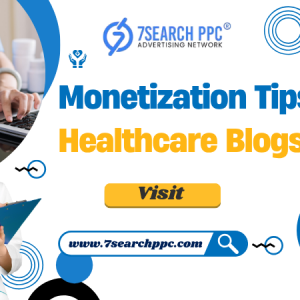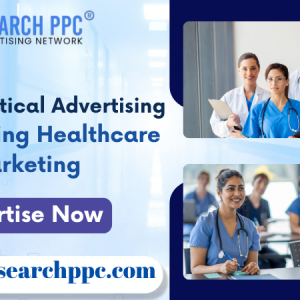In today’s fast-paced digital landscape, higher education ads have become essential for universities and e-learning platforms looking to attract students. With the increased competition in the education sector, creating effective ads that resonate with the target audience is key to staying ahead. From Pay-Per-Click (PPC) advertising to affiliate traffic, these campaigns must be well-strategized to achieve high conversion rates. In this article, we’ll explore the best higher education ads and strategies that ensure success in e-learning marketing.

Advertise Now
What Makes a Higher Education Ad Effective?
When developing ads for the higher education sector, the focus should be on relevance, clarity, and value proposition. Successful ads capture attention, highlight unique features, and guide potential students towards taking action, such as enrolling in a course or requesting more information. With the right mix of creativity and data-driven strategies, higher education institutions can see measurable results from their ad campaigns.
Pay-Per-Click Advertising for E-Learning
One of the most effective ways to drive traffic to your e-learning platform is through Pay-Per-Click (PPC) advertising. PPC ads allow educational institutions to bid on keywords related to their courses or programs, ensuring their ads appear in relevant search results. When executed correctly, PPC ads provide an excellent return on investment by attracting highly targeted audiences.
Benefits of PPC Ads for Higher Education
- Instant Visibility: PPC campaigns can deliver immediate visibility in search engine results, helping your institution stand out from competitors.
- Targeted Audience: With advanced targeting options, PPC ads can be tailored to reach specific demographics based on location, interests, and search intent.
- Flexible Budgeting: Pay only for clicks, ensuring that your advertising budget is spent on leads that have a genuine interest in your offerings.
Top PPC Strategies for E-Learning
- Keyword Research: Identifying the right keywords is critical to ensuring that your ads appear to the right audience. Use tools like Google Keyword Planner to find high-performing keywords in the e-learning sector.
- Ad Extensions: Use ad extensions to provide additional information such as phone numbers, site links, and course details. This increases the chances of users clicking on your ads.
- Remarketing Campaigns: Remarketing allows you to target users who have previously visited your site but didn’t take action. This strategy keeps your e-learning programs top of mind for potential students.
Best Practices for Online E-Learning PPC Campaigns
Creating the best higher education ads for online learning requires a combination of engaging content and a smart bidding strategy. Here’s how to make your online e-learning PPC campaigns more effective:
Highlight Key Program Features
Your PPC ads should emphasize the key features of your programs, such as flexible scheduling, industry-relevant certifications, or expert instructors. Use concise and compelling language to grab attention.
Incorporate Visuals
Including visuals like banners or video ads can significantly increase engagement rates. Visual content is especially powerful for e-learning platforms, as it provides a sneak peek into the learning experience.
Focus on Conversion
For higher education ads, the ultimate goal is to drive conversions. Whether it’s signing up for a course, requesting information, or downloading a brochure, ensure your ads are optimized for conversions. Use clear call-to-action (CTA) buttons like "Enroll Now" or "Get More Info."
Affiliate Traffic for E-Learning Platforms
Affiliate marketing is another powerful strategy for boosting traffic to e-learning platforms. By partnering with affiliates who promote your courses in exchange for a commission, you can expand your reach without investing in costly ad campaigns. Affiliates drive traffic through their platforms, including blogs, websites, and social media channels.
Why Use Affiliate Traffic?
- Cost-Effective: Affiliate marketing is performance-based, meaning you only pay for actual conversions or leads.
- Extended Reach: Affiliates often have access to niche audiences that you may not reach through traditional PPC or display ads.
- Increased Credibility: Affiliates act as trusted third-party endorsers, which can boost your credibility with their audience.
Creating Compelling Online Ads for E-Learning PPC Campaigns
When developing online ads for e-learning PPC campaigns, it’s essential to focus on the unique selling points (USPs) of your courses. Ads should provide potential students with a clear understanding of how your courses can help them achieve their educational goals. Here are some tips to help create compelling ads:

Define the Audience
Knowing your audience is the first step in creating effective online ads. Tailor your message to resonate with different segments, such as working professionals looking for career advancement or high school graduates exploring degree programs.
Use Persuasive Copy
Your ad copy should speak directly to the needs of your target audience. Use words that evoke emotion and motivate action, such as "Transform your career with our flexible online programs."
Optimize for Mobile
Since a significant portion of internet users access content through mobile devices, your online ads must be mobile-friendly. Ensure that your landing pages load quickly and are easy to navigate on smartphones and tablets.
Top E-Learning PPC Companies
If managing your own PPC campaigns seems daunting, you can always partner with a reputable e-learning PPC company. These companies specialize in optimizing PPC campaigns for educational institutions and e-learning platforms. Some top companies to consider include:
- Search Influence
- Sufficient
- Higher Education Marketing
These agencies offer expertise in keyword bidding, ad copywriting, and campaign analytics, helping institutions maximize the effectiveness of their PPC strategies.
E-Learning Marketing: Integrating PPC with Other Strategies
While PPC campaigns are a great way to drive traffic and generate leads, integrating them with other marketing strategies can enhance their effectiveness. For instance, combining PPC with content marketing and email campaigns can create a holistic marketing approach that nurtures leads and improves conversion rates.
Content Marketing
Publishing high-quality blog posts, guides, and e-books on your website can help attract organic traffic and improve your search engine ranking. When combined with PPC ads, content marketing can guide prospective students from awareness to conversion.
Email Marketing
Email campaigns are another excellent way to nurture leads that come through your PPC ads. Follow up with potential students who showed interest in your courses by sending personalized emails with additional information or exclusive offers.
The Role of Data Analytics in Higher Education Ads
To ensure that your higher education ads are performing as expected, it's essential to use data analytics to track their performance. Analytics tools like Google Analytics and PPC campaign tracking can provide valuable insights into how users are interacting with your ads.
Analyze Conversion Rates
One of the most critical metrics to track is the conversion rate of your ads. This will give you a clear indication of how well your campaigns are turning clicks into enrollments or leads.
Monitor Cost-Per-Click (CPC)
Understanding your CPC allows you to manage your budget more effectively. By analyzing which keywords are driving the most cost-efficient traffic, you can optimize your bidding strategy for better ROI.
Use A/B Testing
A/B testing allows you to test different ad variations to determine which one performs best. Experiment with headlines, visuals, and CTAs to find the winning formula.
Conclusion
Higher education ads require a blend of creativity and strategic thinking. By utilizing PPC campaigns, affiliate marketing, and a data-driven approach, educational institutions can successfully attract and convert prospective students. From defining your audience to crafting compelling ads, every element plays a role in ensuring the success of your campaign.
To stay ahead in the competitive e-learning market, it's essential to continuously test and refine your strategies, ensuring that your ads remain effective and relevant.
Frequently Asked Questions (FAQs)
What are higher education ads?
Ans: Higher education ads are marketing campaigns designed to promote educational institutions, programs, or courses. These ads can take various forms, including online ads, social media posts, print media, and more, aiming to attract prospective students.
Why are higher education ads important?
Ans: Higher education ads are crucial because they help institutions reach potential students in a competitive market. Effective advertising can increase enrollment rates, enhance brand visibility, and communicate the value of programs offered.
How can I measure the success of my higher education ads?
Ans: Success can be measured through key performance indicators (KPIs) such as conversion rates, click-through rates (CTR), return on ad spend (ROAS), and cost-per-click (CPC). Using analytics tools can help track these metrics and optimize your campaigns.
What role does affiliate marketing play in higher education advertising?
Ans: Affiliate marketing allows educational institutions to partner with affiliates who promote their courses in exchange for a commission. This strategy helps broaden the reach to new audiences, enhance credibility, and generate additional leads.
What is the best platform for higher education PPC advertising?
Ans: While Google Ads is one of the most popular platforms for PPC advertising, other platforms like Facebook Ads and LinkedIn Ads can also be effective, especially for targeting specific demographics relevant to higher education.











